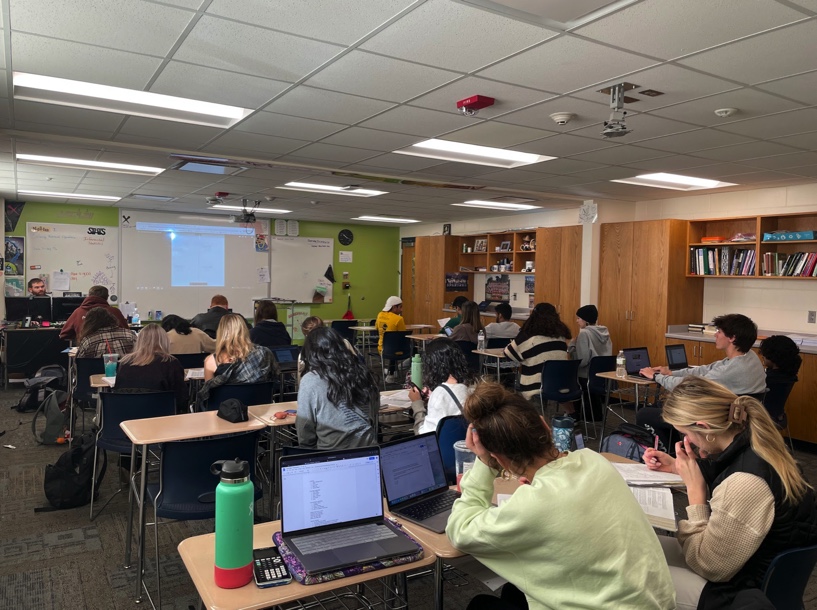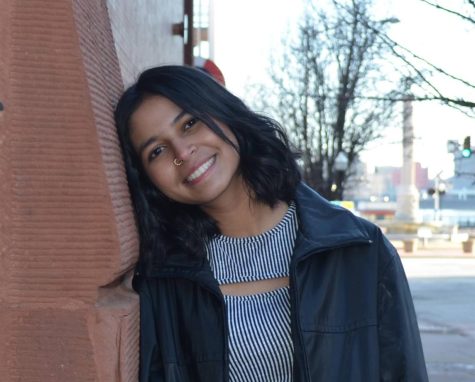In the days leading up to the June primary election, Iowa Governor Kim Reynolds announced her support for tax-payer financed vouchers, a stance that was in opposition to a handful of Republican House incumbents. During the 2022 midterm election season, Reynolds’ controversial campaign efforts paid off as she was reelected into office.
When the Iowa Legislature returns to Des Moines on Jan. 9, rural America must brace itself for the 2023 Legislative session, when decisions about school choice will be made by a considerably-larger Republican majority than May 9, when this year’s session ended.
Under the school-choice system, parents are provided with taxpayer-funded vouchers that can be used to pay for student education, public or private. Reynolds believes that school choice would encourage competition between Iowa schools to improve education while also providing parents with more liberty in making decisions about their children’s education.
Reynolds’ school-choice policy is part of her “Providing Educational Choice and Transparency for Iowa Families” plan, which also advocates for changes to public school requirements and course materials.
More freedom for families and less economic inequality — what may sound good on paper, in reality, has terrible implications. And rural schools will face the brunt of these consequences.
Reynolds’ proposal outlines her intentions to allow state tax dollars to be pulled away from public schools and allocated to families in the form of vouchers. Under her plans, $55 million in state tax money would be diverted from public K-12 schools and siphoned into private schools; parents would receive $5,500 for each child that enrolls in a private school.
Based on the parent’s decision, the corresponding school will also receive a portion of the “per-pupil” funds allocated by the state to be used for educational purposes. This means that rural schools, which are already chronically underfunded, will be pushed further into debt.
PV English teacher Robyn Samuelson has witnessed the effects of underfunded rural public schools. “My sister-in-law and brother have sent their kids to Catholic schools because their public schools are underperforming and they value education. But what will happen if Reynolds’ voucher bill goes through is that they will start to take funding directly out of public schools and write a check to parents,” Samuelson said.
But in 42 of Iowa’s 99 counties, there are no private schools in the first place. In places like Keokuk County, there are only three public school districts, each with fewer than 600 students. Reynolds’ proposed private school vouchers would displace thousands of rural students and eventually cause the closing of smaller school districts.
When considering school choice, it’s important to consider why parents are making the choices they make in the first place. When public education is a free option, pre-funded by taxpayers, why does roughly one in every 10 families opt for a private school?
While some choose private education for a higher quality of education—a claim that has been disproved by numerous studies— others are motivated by religious beliefs.
According to the National Center for Education Statistics, there are over 32,000 private schools in the nation, with over 5.7 million students in attendance. Of these 32,000 private schools, approximately 84% are religious. In Iowa,
This is where school choice grows even more problematic. Earlier this year, the Supreme Court ruled that public money can go towards non-instructional activities, such as purchasing Bibles or funding renovations for the school’s sponsoring church, further lowering the wall between church and state.
Samuelson believes that Reynolds’ proposition violates democratic values. “Parents with vouchers can go to private schools, where there is no regulation by the state or no guarantee of a viable curriculum. In the case of religious education, this is government money being used to fund indoctrination into religion, which is fundamentally anti-democratic.”
Parents have the right to send their children to private schools that have religious affiliations at their own expense. It is when taxpayers are funding this decision that school choice turns problematic.
Samuelson continued, “If we continue to under-educate the poorest Americans, we will have a class of people that just continue to decline in their intellect. It adds to the growing divide between the rich and the poor and the idea of access to quality education is very detrimentally impacted by such a measure.”
As school-choice debates renew, it is important to remember that true educational opportunity doesn’t arise from relocating public funds to private schools, but, rather, a well-funded public school system that can provide free, quality education to all students.









